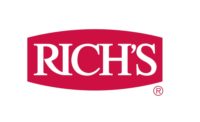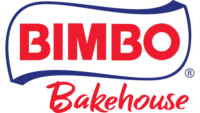With the right recipe and conditions for growth, greatness can arise from humble beginnings. Such is the case with Main Street Gourmet, located in Akron, OH, a bakery company founded by lifelong friends Steve Marks, co-founder, member of the board of directors and former co-CEO, and Harvey Nelson, co-founder and CEO.
What started with a building purchased on a whim at a county real estate auction has grown into a multimillion-dollar bakery powerhouse serving high-profile customers across retail in-store bakery (ISB) and chain foodservice.
Putting muffins on the map
“Harvey and I have known each other since I can ever remember doing anything,” says Marks. “Our grandfathers played pinochle together for 40 years. Our parents were best friends growing up. We were in the same nursery and elementary schools. We went to different high schools, but we were roommates in college.”
After college, Nelson got into computer programming and analysis, and Marks became an accountant. A few years after graduation, in 1986, Marks bought a building at a sheriff’s real estate auction for $5,000. It was a five-story structure dating back to the 1930s, located on Main Street in the heart of downtown Akron.
“I brought Harvey into the picture, and we decided to put some money into the building to get it up and running,” says Marks.
“Around that time, we visited a friend in California,” says Marks. “We were at a place called the Beverly Center in Los Angeles, and there was a shop that just sold muffins. It was the busiest place in the mall. And we reasoned that what was popular in California today would be popular in Ohio tomorrow. So we decided to put a muffin shop in our new building in Akron.”
Nelson quit his job and started developing muffin recipes for the business, dubbed Main Street Muffins. “We had no knowledge of baking, no knowledge of food,” he says. “We didn’t even have Kenner Easy-Bake Ovens as kids. We did a lot of unusual things because we didn’t know better. We tried all these odd flavors, because we didn’t know what was traditional. We tried lunch muffins— peanut butter and jelly, broccoli and cheese, spinach and cheese, tuna fish and celery—all kinds of weird combinations.” The early days were kind of hit and miss.
“Sometimes we had a lot of leftover muffins,” says Marks.
The location was close to The University of Akron, notes Marks, and a lot of businesses were still downtown. “On our first day, in July of 1987, we had 3,000 people come through our doors. We had a band out front. We just went crazy. We added sandwiches, soups and cookies and attracted a loyal following.” Main Street Muffins was on the map.
“About six months into it, a restaurant owner came in and said: ‘Hey, I love your muffins. I’d like to take the batter back to my restaurant and bake off my own muffins,’” says Marks. “At the time, we looked at that as more of a threat than an opportunity. We said, ‘Get here at 5:00 when we close. And if we’re in a good mood, we’ll sell you some muffin batter.’ We made it kind of difficult for this guy. But he showed up. And he came back the next day, and the day after that, and the day after that, and so on. Finally, a light bulb went on, and we figured out that this was an opportunity. And that’s how we jumped into wholesale.”
“It evolved from there,” says Marks. “We sold our retail store and focused on wholesale business, which was just frozen muffin batter at the time.” Its customer were area restaurants, hospitals and schools.
“We would like to think we did some things that no one else was doing,” says Marks, “smaller batches, exotic flavors.” The frozen format lent itself to working in all-natural and preservative-free—well the industry caught up to those trends. “We had to be different than whatever else was out there.”
Chain reaction
In 1989, a significant opportunity arose—selling its muffin batter to an Akron-area McDonald’s franchisee who wanted to test-market muffins. This was a time when McDonald’s franchise owners had more control and flexibility. “We did a test with 10 stores,” says Marks. They eventually settled on a system of portioning the batter into aluminum muffin to bake in the biscuit oven. “It was pretty spectacular. We had great numbers. And we took those numbers and went to other franchises.”
Main Street Muffins ended getting product into around 1,500 stores, notes Marks. “It really fueled our growth.” It also helped them improve their facility’s SOPs. “McDonald’s made us do some things we weren’t yet doing from a safety and sanitation standpoint.”
In 1990, the business moved into a larger, 25,000-square-foot production facility. Distribution expanded to surrounding states. In 1992, Main Street Muffins made Inc. magazine’s list of the 500 fastest-growing businesses in the U.S. In 1995, they moved into the current facility at 170 Muffin Lane in Akron’s Ascot Industrial Park. An acquisition of a cookie company brought new products into the fold, and a brownie company soon followed. Then scone capability was added a couple of years later. These moves dictated a name change, and the company was renamed Main Street Gourmet to reflect its expanding scope of products.
Then in 1999, Main Street Gourmet bought Isabella’s, which opened the door to better-for-you products like sugar-free and fat-free baked goods. They also expanded the facility to 55,000 square feet and added a wall of ovens to start baking. Competency for granola products came around 2000. Icings and toppings also eventually entered the picture.
Most recently, in 2017, the company expanded again, adding more freezer and production space. The facility today is certified SQF Level 2.
Bakery magic
With these expanded capabilities, Main Street Gourmet now had the ability to develop highly customized products for its customers, which include natural foods and wholesale/club retailers, and a wide range of restaurant chains, including family dining restaurants, bakery-cafés, sandwich chains, QSRs and more.
“We exist to be each customer’s fairy godmother for custom bakery products,” says Nelson. Main Street Gourmet has adeptly dealt with change from the start. “First Steve and I let go of our other businesses when we started this one,” says Nelson. “Then we went from selling muffins to selling muffin batter. That took a major change. Then we let go of the muffin batter business when we went into custom product development. At each step, we had to change our infrastructure, the whole way we worked.”
Now the bakery is set up in a nimble fashion to enable multiple changeovers every day. Change is part of its business culture.
“We can do organic,” says Marks. “We can do non-GMO. We can do a clean label. We can do sugar-free, fat-free. We can do vegan.” It’s all built into the bakery’s ingrained flexibility.
“We set up our building and its infrastructure to accommodate customized products,” says Marks. Establishing a strong reputation as a custom-oriented bakery factors into everything from the equipment to the operational culture. “You need to have that mentality of being nimble and quick. We have to be able to move equipment in and out. We don’t have long runs.”
These days, the right opportunities emerge within the context of calculated risk. “It helps if a potentially new product competency is something that could also benefit existing customers,” says Nelson.
A multicultural core
As part of the 2019 IBIE BEST in Baking Program, sponsored by SF&WB and highlighting top innovations across baking, Main Street Gourmet was recognized with Top Honors in the Workforce Development category. Main Street Gourmet’s innovative staffing model involves hiring recently resettled refugees.
“We speak around a dozen languages in this plant. We’ve helped a lot of employees become citizens,” says Marks.
“Starting in 2008, we made a concerted effort to create a program that would attract and retain qualified employees,” says Kelly Loebick-Frascella, human resources director. This involved partnering with the International Institute of Akron, a nonprofit that has helped settle immigrants and refugees into the Akron area for over 100 years.
The program has grown into a competitive advantage. “It has blossomed into something that’s now part of our culture,” says Loebick-Frascella. “Currently, 42 percent of our workforce has refugee status. The upfront training and development has paid off immensely. These employees develop a commitment to Main Street Gourmet. In turn, they help bring in additional people, creating a stream of really good candidates.”
The program has helped with employee retention. “We did a study when we started this process,” says Loebick-Frascella. “The baking industry in general has around a 40 percent turnover rate. Ours was 17 percent in 2018.”
A training manager develops training documents and processes, notes Loebick-Frascella. Team leaders help oversee that training, and then they and line leaders work with individuals to get them acclimated. “People feel welcomed when they come in,” she says. As they grow in their positions, opportunities often arise for leadership development.
Main Street Gourmet has several other ongoing points of interaction with the surrounding community. “Steve and his family started the Akron Marathon,” says Nelson.
The bakery also donates to the Akron Canton Regional Food Bank through No Muffin Left Behind, a semi-annual event where Main Street Gourmet sells overstock, discontinued and slightly imperfect products at very low prices.
Another community outreach, Muffins for Mammograms, raises money for people who can’t afford mammograms. Nelson notes that over the years, the fundraiser has brought in over $1 million.
The view from Main Street
Through the years, Marks and Nelson have worked with various venture capital and private equity firms to fuel growth. Most recently, the Chicago-based private equity firm Shore Capital Partners made a majority investment into Main Street Gourmet with an eye on future growth.
Other changes are afoot. Marks recently made the decision to retire from his full-time position as co-CEO at the end of October, but will continue in his role on the board of directors.
Main Street Gourmet has come a long way over the past 30-plus years, from humble retail bakery storefront to multimillion-dollar wholesale bakery.
“Over that time, I’ve seen a lot of employees that have been here for 10, 15, 20 years, people who established their livelihoods,” says Marks.
When the IT guy at the company outgrew his position, he left to start a new business. “We were his first customer,” says Nelson.
“It’s sort of like when you’re a head football coach and you see your other coaches go to other teams and be successful—that’s very gratifying,” says Marks. “I’m very proud of our employees.”
Now Shore Capital is poised to take Main Street Gourmet to the next level. “There will be great growth opportunities for everybody who is here now,” says Nelson. “And that’s really important.”
AT A GLANCE
TH Foods, Inc.
Company: Main Street Gourmet
Headquarters: Akron, OH
Website: www.mainstreetgourmet.com
Plant: 68,000 square feet
Average number of employees: 160
Products: Muffins, cookies, brownies, granola, scones
Key Personnel
CEO and Founder: Harvey Nelson
Former Co-CEO, Founder and Board of Directors: Steve Marks
CFO: Robert Ecker
Sales Director: Nate Searles
R&D Technical Director: Dan Maurer
Human Resources Director: Kelly Loebick-Frascella
Planning and Scheduling Manager: Bob Braun
Production Manager: Mike Braun
Purchasing Director: Dan Wilson
Custom Projects Director: Jeremy Butler
Controller: Marla Kuba
Food Safety Director: Kim Jeffrey
QA and Sanitation Manger: Angie Stoughton
Customer Service Manager: Danielle DeAngelis










